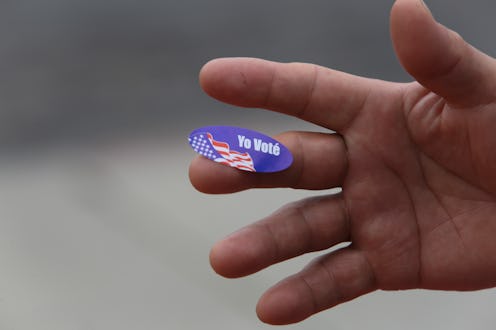News
Most States Have A Winner-Takes-All System
Despite being a cornerstone of American representative democracy, the operations of the Electoral College remain a mystery to most Americans. Whether it's how electors are chosen or when they convene to formally elect the president, the Electoral College is mighty confusing, even to those who familiar with politics and government. One of the more confusing aspects of the operations of the Electoral College is the way electors, like delegates during the primaries, are bound to vote. Those confused by primary delegate math might also wonder: are any states winner-takes-all? The way electors cast their votes on behalf of the American electorate doesn't actually vary that much.
According to the U.S. Archives, 48 states and the District of Columbia all use a "winner-takes-all" system when it comes to how their electors must vote for president. Only two states, Nebraska and Maine, deviate from this norm by using a proportional allocation of votes, meaning electoral votes are based on the percentage of the total vote a given candidate received. In Nebraska and Maine, if two-thirds of the electorate votes for one candidate, for instance, than two-thirds of their electors must vote for that candidate. Everywhere else, the candidate who receives the majority or plurality (meaning highest percentage) of the popular vote will then receive all of that state's votes. It's through the winner-takes-all system that most states "go blue" or "go red."
The winner-takes-all system makes sense, especially when it comes to the ways electors are bound to vote for the states they represent. The winner-takes-all system is also the reason we have what are known as "swing states" or "battleground states" — states that both candidates focus heavily on in order to "swing" the state's entire electoral delegation their way. Enter the idea of one's vote not counting: in states like California or Texas, if the majority of your state doesn't vote for your candidate, then your state won't vote for them. Although there's ample evidence to suggest that your vote does count, especially when it comes to every race besides the presidential one, it's a sense of frustration that seems to disenfranchise a lot of voters.
A fascinating interactive article released recently by The Washington Post illustrated, using hard data, the ways that our current electoral system affects the outcome of our elections, and how recent presidential elections could have changed if we had different systems in place. For now, winner-takes-all is how almost every state will elect the next president, and although this system will almost definitely benefit Hillary Clinton on Nov. 8, we should definitely re-examine it after the hoopla surrounding this election is over.
